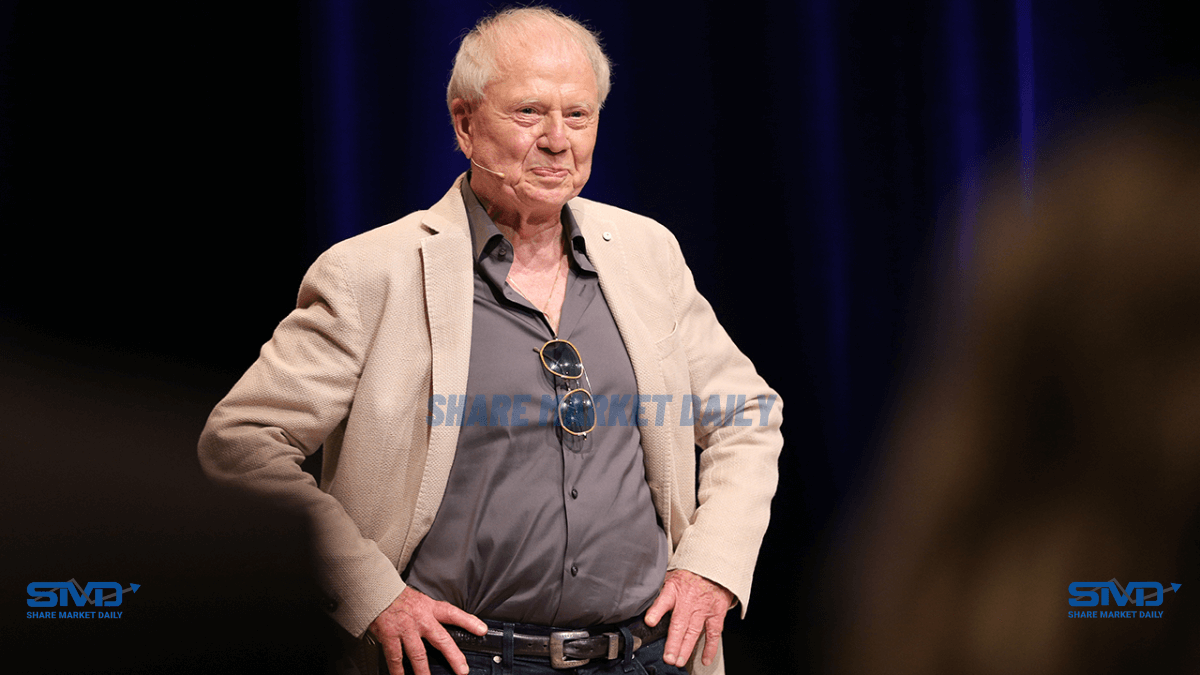Filmmaker Wolfgang Petersen, Director Of ‘das Boot,’ Dies
There has been a death in the family of Wolfgang Petersen, the German filmmaker whose acclaimed World War II submarine epic “Das Boot” launched him into a blockbuster Hollywood career that included the films “In the Line of Fire,” “Air Force One” and “The Perfect Storm.” He was 81.
As a result of a battle with pancreatic cancer, Petersen passed away Friday at his home in the Los Angeles neighborhood of Brentwood, his representative, Michelle Bega, told reporters.
In 1982, Petersen made his breakthrough with “Das Boot,” then the most expensive film in German history at the time, a film he was born in Emden, a city in the north of the country.
With Jürgen Prochnow as the submarine’s commander, the 149-minute film chronicles the intense claustrophobia of life aboard a doomed German U-boat during the Battle of the Atlantic, during which the crew was locked in tight quarters.
“Das Boot” has been hailed as an antiwar masterpiece, nominated for six Academy Awards, including Petersen’s direction as well as his adaptation of Lothar-Günther Buchheim’s best-selling 1973 novel.
Filmmaker Wolfgang Petersen, Director Of ‘das Boot,’ Dies at 81
Petersen, who was born in 1941, recalls running alongside American ships that threw down food when he was a child.
Petersen was a theater actor before he went to Berlin’s Film and Television Academy in the late 1960s, and during the confusion of postwar Germany, he gravitated toward Hollywood films that showed clear clashes between good and evil.
A major influence on the development of the film industry was John Ford.
The Los Angeles Times reported in 1993 that Petersen told them, “In school, they never talked about the time of Hitler – they just blocked it out of their minds and concentrated on rebuilding Germany instead,” Petersen said.
We kids were looking for more glamorous dreams than rebuilding a country that had been destroyed by war, so when American pop culture came to Germany, we were really ready to embrace it.
It was like we all lived for American movies, and by the time I was 11 I had decided I wanted to become a filmmaker.”
His first film in Hollywood was “Das Boot,” and he quickly became known as one of the most influential filmmakers in the world of cataclysmic action adventures.
He has made films spanning war (2004′s Troy, with Brad Pitt), pandemics (the 1995 ebolavirus-inspired “Outbreak” ), and other oceanic disasters (2000′s “The Perfect Storm” and 2006′s “Poseidon,” a remake of the movie “The Poseidon Adventure,” about the sinking of an ocean liner).
A child fantasy film was Petersen’s first attempt at filmmaking in the United States: the charming 1984 film “The NeverEnding Story.” Based on the novel by Michael Ende, “The NeverEnding Story” is about a magical book that transports its young readers into the world of Fantasia, where a dark force known as the Nothing rampages.
Perhaps Petersen’s finest Hollywood film came almost a decade later with Clint Eastwood in the role of a Secret Service agent protecting the president of the United States from John Malkovich’s assassination in 1993’s “In the Line of Fire.” This movie allowed Petersen to combine his considerable skill at building suspense with a more open-air, yet no less riveting thriller that careened across rooftops and past Washington D.C. monuments.
When Eastwood was searching for a director for the film, he immediately thought of Petersen, with whom he had chatted a few years earlier at a dinner party held by Arnold Schwarzenegger, where the two had shared a laugh.
After meeting with Petersen, Eastwood checked out his work and offered him the position. As a result of the success of “In the Line of Fire”, it grossed $177 million worldwide and was nominated for three Academy Awards.
It is not uncommon for you to have cycles of seven years. If you look at other directors, they don’t always have the big successes they’re accustomed to. “As far as my career was concerned, I was one success after another up to the release of ‘NeverEnding Story,'” Petersen told The Associated Press in 1993.
After that, I was thrust into the stormy international scene that was raging at the time. It took me some time to get used to this kind of work — it’s not the same as Germany anymore.”
In Petersen’s view, the political thriller – which portrayed Eastwood as a heroic but tired defender of the less honorable president – was an indictment on Washington as a whole.
According to Petersen, “I believe John’s character’s words, ‘Nothing they told me was true, and there’s nothing left worth fighting for,’ will resonate with many people, since he says, ‘There’s nothing left to live for.'” In other words, the film is rooted in a profoundly pessimistic view of what has unfortunately happened to this country in the last 30 years. “Take a look around – there is corruption everywhere, and there is not a lot to celebrate.”
As a result of his role in “Outbreak,” starring Dustin Hoffman, Rene Russo, and Morgan Freeman, Petersen returned to the presidency in 1997 via “Air Force One.” Harrison Ford played a president forced into a fight with terrorists hijacking Air Force One.
Despite the success of the film “Air Force One,” with $315 million at the global box office, Petersen went for something even bigger in the film “The Perfect Storm,” the true-life story of a Massachusetts fishing boat that was lost at sea in 2000.
In addition to George Clooney and Mark Wahlberg, the film featured a 100-foot computer-generated wave which was the main attraction of the film. “The Perfect Storm” had a budget of $120 million, but it made $328.7 million in the end.
The sea has long held a fascination for Peterson, who grew up on the northern coast of Germany and grew up near the sea.
During a 2009 interview with the New York Times, Petersen said, “The power of water is beyond belief.” During a 2009 interview with the New York Times, Petersen said, “I was always impressed as a kid at how strong the water is, all the harm it could do if it turned within a couple of hours and smashed against the shore.”
After the successful release of “The Perfect Storm,” Petersen came up with “Troy,” an epic film based on Homer’s Iliad that found less favor with critics, but still made nearly $500 million globally. “Poseidon,” a big-budget film that was a high-priced flop for Warner Bros., was Petersen’s last movie in the Hollywood studios.
Petersen’s final film was the German film “Four Against the Bank” which was a remake of the German TV movie he had made himself back in 1976.
In his first marriage, Petersen was married to the German actress Ursula Sieg.
After his first marriage to Maria-Antoinette Borgel, a German script supervisor and assistant director ended in divorce in 1978, he then married Maria-Antoinette Borgel.
In addition to his wife Borgel, he is survived by his son Daniel Petersen and two grandchildren.


